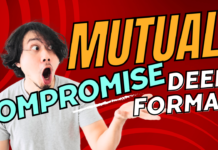English contractions are shortened versions of two words where an apostrophe is used to replace omitted letters. They are commonly used in spoken and written English, and are considered informal. Here are some examples:
I’m = I am
don’t = do not
can’t = cannot
it’s = it is
he’s = he is
she’s = she is
we’re = we are
you’re = you are
they’re = they are
isn’t = is not
aren’t = are not
couldn’t = could not
wouldn’t = would not
shouldn’t = should not
It’s important to note that some contractions have multiple meanings depending on the context, such as “it’s” (it is or it has) and “they’re” (they are or they were).
here is a list of commonly used contraction words in English:
I’m = I am
he’s = he is
she’s = she is
it’s = it is
that’s = that is
who’s = who is
what’s = what is
where’s = where is
when’s = when is
why’s = why is
how’s = how is
can’t = cannot
don’t = do not
won’t = will not
isn’t = is not
aren’t = are not
wasn’t = was not
weren’t = were not
hasn’t = has not
haven’t = have not
didn’t = did not
couldn’t = could not
shouldn’t = should not
wouldn’t = would not
It’s worth noting that some contractions have multiple meanings, such as “it’s” (it is or it has) and “they’re” (they are or they were). Additionally, there are some less commonly used contractions as well.
There are several contractions in English that have multiple meanings depending on the context. Here are some examples:
It’s: This contraction can mean “it is” or “it has,” depending on the context. For example, “It’s raining outside” means “It is raining outside,” while “It’s been a long day” means “It has been a long day.”
They’re: This contraction can mean “they are” or “they were,” depending on the context. For example, “They’re going to the movies tonight” means “They are going to the movies tonight,” while “They’re not coming to the party because they were sick” means “They were not coming to the party because they were sick.”
We’re: This contraction can mean “we are” or “we were,” depending on the context. For example, “We’re going to the beach this weekend” means “We are going to the beach this weekend,” while “We’re so happy we were able to go on vacation” means “We were so happy we were able to go on vacation.”
You’re: This contraction can mean “you are” or “you were,” depending on the context. For example, “You’re the best thing that’s ever happened to me” means “You are the best thing that’s ever happened to me,” while “You’re so lucky you were able to go to the concert” means “You were so lucky you were able to go to the concert.”
Let’s: This contraction can mean “let us” or “let’s have,” depending on the context. For example, “Let’s go to the park” means “Let us go to the park,” while “Let’s have a party tonight” means “Let’s have a party tonight.”
While there are many commonly used contractions in English, there are also some less commonly used ones. Here are some examples:
I’d = I would or I had
he’d = he would or he had
she’d = she would or she had
we’d = we would or we had
they’d = they would or they had
there’s = there is or there has
here’s = here is or here has
who’d = who would or who had
what’d = what would or what did
how’d = how would or how did
when’d = when would or when did
where’d = where would or where did
could’ve = could have
should’ve = should have
would’ve = would have
It’s worth noting that while these contractions may not be as commonly used as others, they are still considered standard English contractions and may be used in appropriate contexts.
Here are some examples of contractions in English:
I’m going to the store. (I am going to the store.)
You haven’t eaten yet. (You have not eaten yet.)
It’s a beautiful day outside. (It is a beautiful day outside.)
She’ll be here soon. (She will be here soon.)
They’re not coming to the party. (They are not coming to the party.)
Don’t forget to take your keys. (Do not forget to take your keys.)
We’re running late. (We are running late.)
He’s been working all day. (He has been working all day.)
That’s not what I meant. (That is not what I meant.)
Can’t you see I’m busy? (Cannot you see I am busy?)
I’d love to come to your party. (I would love to come to your party.)
Should’ve listened to my mother’s advice. (Should have listened to my mother’s advice.)
We’d better get going if we want to make it on time. (We had better get going if we want to make it on time.)
It’s been a pleasure working with you. (It has been a pleasure working with you.)
Who’s going to pick up the kids from school? (Who is going to pick up the kids from school?)












